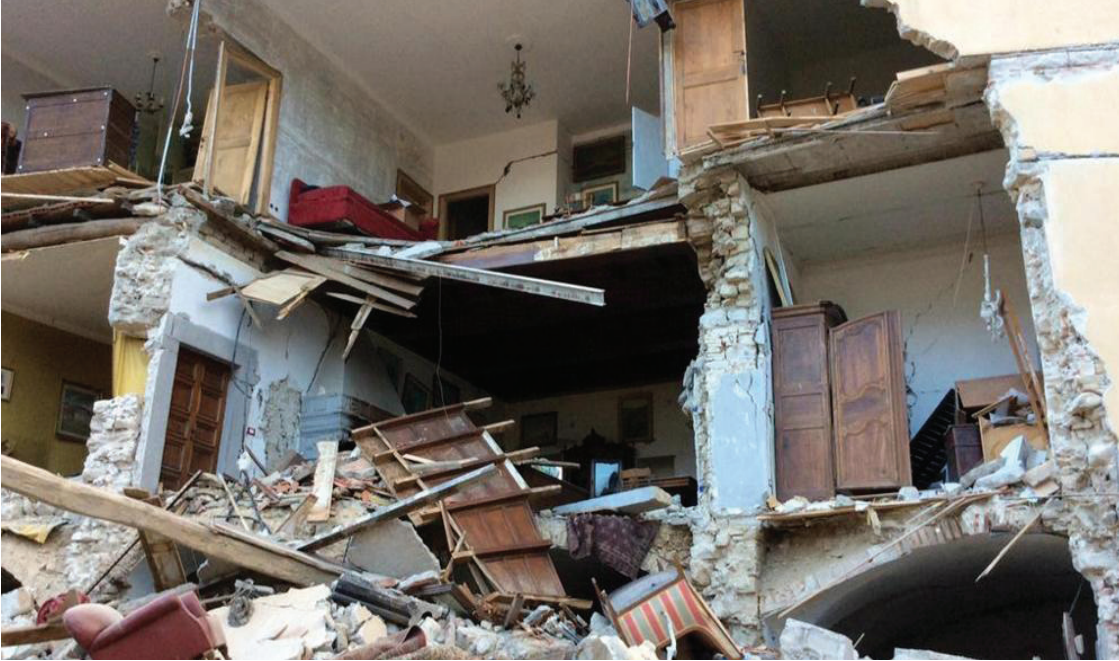
On November 26, an earthquake struck Albania which was so powerful that people felt its tremors in Bosnia and Bulgaria. Albania was the epicentre and the damage was very severe. 51 dead. Entire families, including all their children, killed; or nearly entirely, as in the case of the firefighter who, in the midst of the desperate rescue operation, found all seven members of his family, dead among the wreckage. Hundreds were injured, and about twenty thousand people lost their homes … (You can find more about this event is in the Visible Soul section). Earth, as man’s habitat, his home, is part of the human condition, argued Hannah Arendt. And, from the earliest human representations, the earth has been symbolically identified with the mother. Therefore, among natural disasters the earthquakes, the earth tremors, the threat of death arising from the depths of the earth, has the deepest psychological impact on survivors. An earthquake transforms your home, in the literal sense, from a place of sanctuary par excellence to the opposite, a trap, your grave.
Home, earth … In another context, these words can mean the territory of a state, and when they mean tribal territory, or the expansion of tribal territory, they can become a source of calamity even more terrible than the natural disaster resulting from the collision of tectonic plates deep beneath the earth, and such calamities, unlike the earthquake, are man-made, precisely because of the latter sense of love for home or land. In the Balkans, such calamities are too recent: wars, ethnic cleansing, torture, the massacre of defenseless civilians, concentration camps, mass graves …
To cope with the impact of the natural disaster, Albania has received much support, not only from the wealthy West, but also from many Balkan countries. Equipment and people have come from Greece and Turkey, from Romania and North Macedonia, from Kosovo, Serbia and Montenegro. Experts from different countries, working together in the ruins, with professionalism and humanity, for the same purpose. “It’s our job,” said one Serbian expert, “we come together in a disaster, regardless of nationality and borders, and we do this to help the vulnerable, as well as to gain experience and knowledge. Otherwise we would also be harming ourselves.”
A natural disaster brought us together. Could that mean the hostility and hatred between the peoples of the Balkans has dissipated? Will we cause any more catastrophes? Primo Levi writes: “Many individuals and many nations can find themselves believing, more or less consciously, that ‘every stranger is an enemy’. For the most part this conviction lies buried in the mind like some latent infection; it betrays itself only in random, disconnected acts, and is not the basis of a system of thought. When this happens, when the unspoken dogma becomes the main premise in a syllogism, then, at the end of the chain, stands the Lager. Here is the product of a conception of the world carried rigorously to its logical conclusion; so long as the conception subsists, the conclusion remains to threaten us.” And yet, the tribal, ethnic worldview, the dogma, the ideology still survives. Currently, there are gusts of wind from the East that may fan this “latent infection”. The West, the European Union, is genuinely committed to peace in the Balkans, though presently it has its own challenges at home. George Steiner provides us with an apt concluding quote: “We must keep vital in ourselves a sense of scandal so overwhelming that it affects every significant aspect of our position in history and society”. He wrote this in 1971, more than a quarter of a century after the horror to which he refers.
Translated by Alexandra Channer
